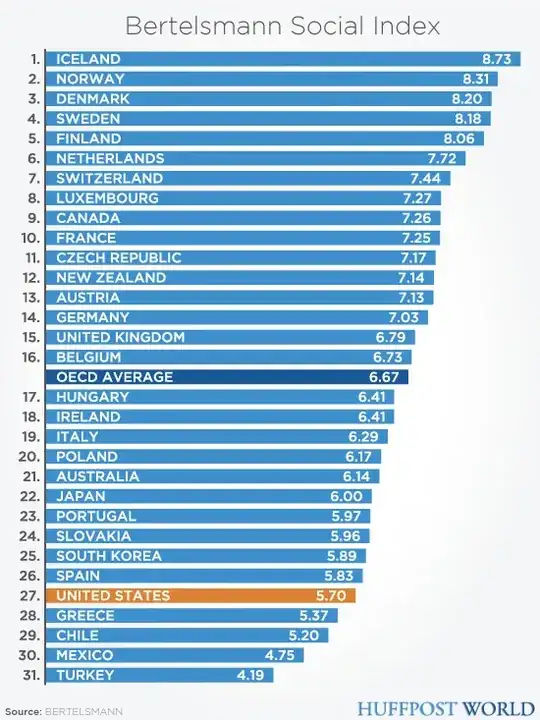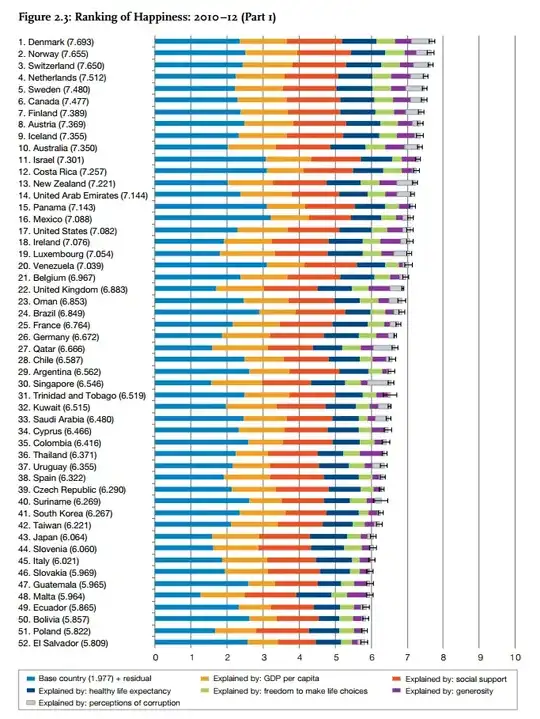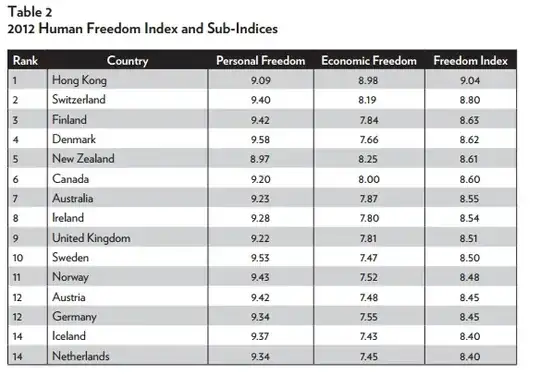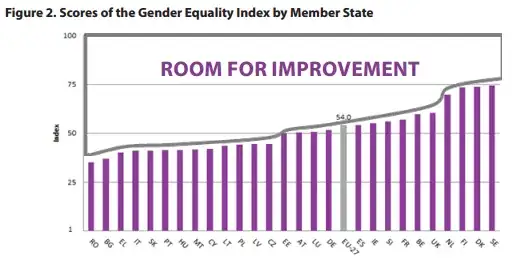Just listening to some thinking kind of stuff on YouTube and came across an interview with Stephen Fry, a highly respectable man in the "empiricist" and "rationalist" circles. I found most of what he said compelling and believable, but he made this very precise claim:
Countries that have kings and queens, which are rationally stupid weird ideas, are empirically freer and more socially just than countries that don't.
- "Stephen Fry on Political Correctness and Clear Thinking", The Rubin Report on YouTube, approx. 4:05 to 4:21
He offers up as markers "social justice, happiness, freedom, and equality". He further lists as examples "Sweden, Denmark, Norway, Benelux countries, Britain, and Holland", countries all with kings and/or queens and "constitutional monarchies".
I would hope that someone of his caliber would have actual empirical studies in mind when he lays out freakonomics like this. What evidence is there to support or reject this claim?



